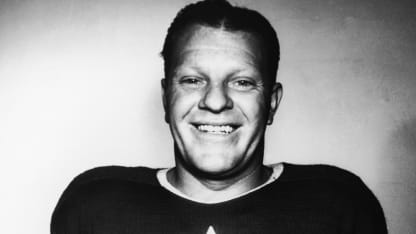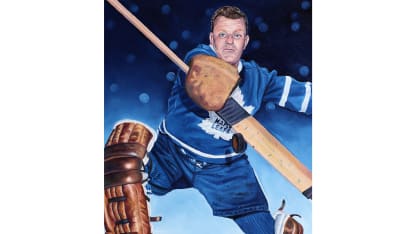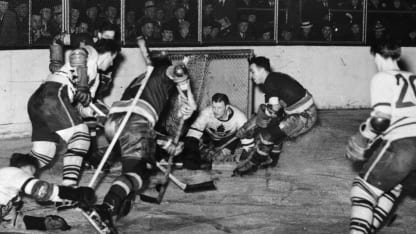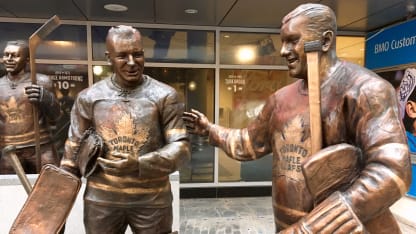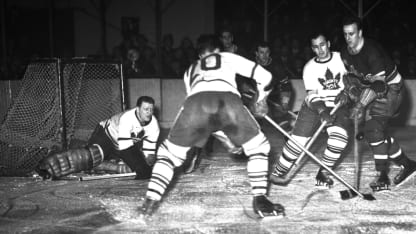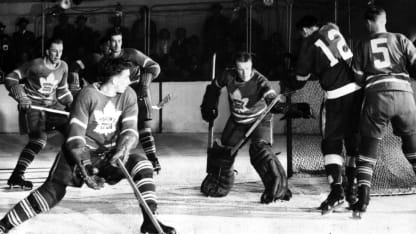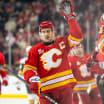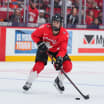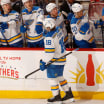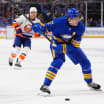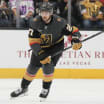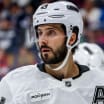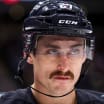Toronto's playoff prospects took a hit early in the first round after the Red Wings lit up Broda for nine goals in Game 2, tying the series. Then Broda got going, limiting Detroit to one goal in each of the next three games to advance to the Stanley Cup Final. After Montreal scored six goals in Game 1, Broda surrendered seven goals in the next five games, including a bounce-back Game 2 shutout, as the Leafs skated away with the Stanley Cup."
The following season, Toronto finished first in the regular season, and Broda won the Vezina Trophy and was named a First Team All-Star, his second of each honor. His 2.38 goals-against average topped the NHL. The powerful Leafs then defeated the Boston Bruins in five games and swept the Red Wings for their second straight Cup. Broda's nine-game playoff goals-against average was 2.15, his lowest since 1941.
After two straight Cups, Broda's and Toronto's regular-season showing dipped in 1948-49. Finishing below .500, the Leafs placed fourth and Broda had a 2.68 goals-against average. But once the playoffs began, Broda's shutout of the Bruins in Game 1 of the semifinals set the tone. "Old Slippery" returned to form with a 1.57 GAA in the playoffs as the Bruins and Red Wings fell in a combined nine games.
Broda was part of one of hockey's most legendary postseasons in 1951 when all five games of the Stanley Cup Finals against the Canadiens went to overtime.
Broda's playoff performance in 1951 proved to be his last hurrah. Sharing goaltending duties with Al Rollins, the 36-year-old Broda played in eight playoff games, although only in the first two in the Final. Still, he surrendered nine goals, for a 1.10 GAA.
"I couldn't beat him," Maurice Richard said. "Toe Blake couldn't. None of the Canadiens could."
It was Broda's fourth Stanley Cup victory in five years.
He would appear in only three more games during 1951-52, playing part of one regular-season game, before retiring. A Turk Broda Night followed at Maple Leaf Gardens, as did a testimonial dinner where Smythe promised him one more playoff game, to bring his total to 100. So that spring, Broda faced the powerful Red Wings, the eventual champions, in Game 2 of the semifinals and surrendered one goal in a 1-0 loss.
Hoping Broda might inspire the Leafs again, coach Joe Primeau turned to him for Game 3 at home, but in losing 6-2 he looked all of 37 compared to the acrobatics of 22-year-old Red Wings goalie Terry Sawchuk. It was a symbolic passing of the torch to a great new generation of goaltenders.
"He always did play real well in the playoffs," recalled former Bruins center Milt Schmidt. "He was one of the best money players ever."
For more, see all 100 Greatest Players
